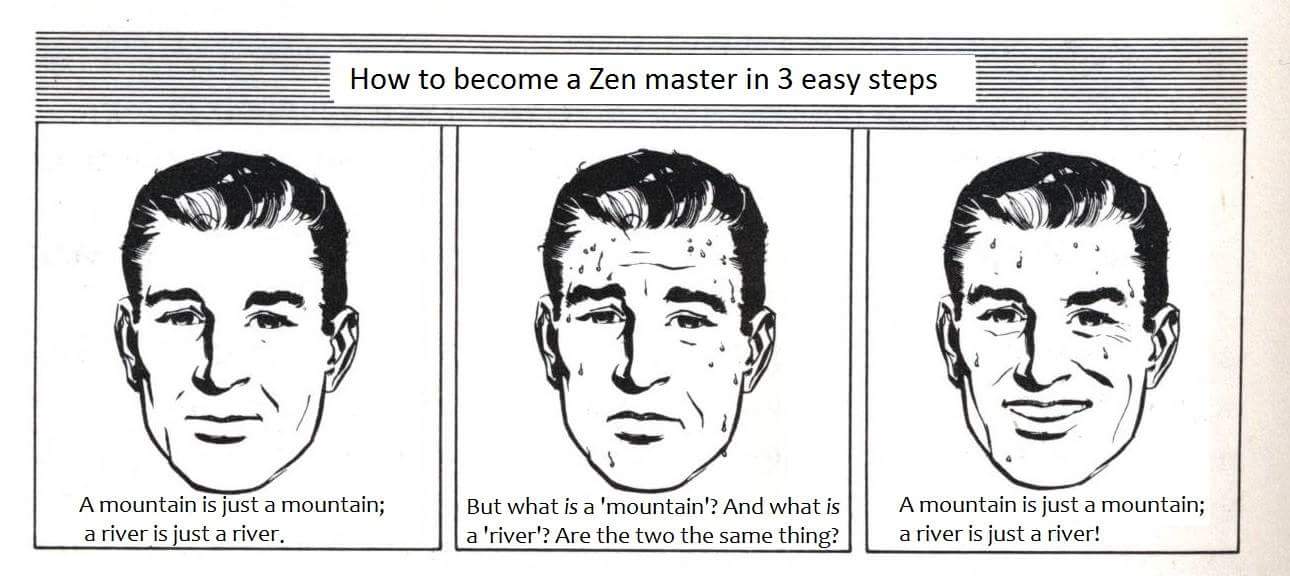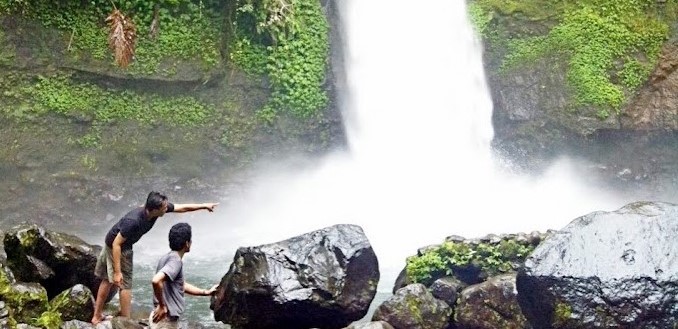There is a famous Zen saying:
“Before I had studied Zen for thirty years, I saw mountains as mountains, and waters as waters. When I arrived at a more intimate knowledge, I came to the point where I saw that mountains are not mountains, and waters are not waters. But now that I have got its very substance I am at rest. For it’s just that I see mountains once again as mountains, and waters once again as waters.”
(Alan Watts, The Way of Zen, New York, Pantheon Books, 1951, p. 126, 220 k)
Although I am not a Zen disciple and have not reached enlightenment (yet), the quoted saying captures my internal experience of learning aptly. A study usually involves breaking down an object of study and then putting our attention to its part. We would learn about their names, properties, behavior, and their relationship with other entities. By dissecting and analyzing it from various perspectives, we can expand our understanding of the topic and challenge our previous assumptions with the new information we gain.

In the process, we alter the way see the object. The mountain is no longer a mountain, it’s the sum of its part. The river is no longer a river, it’s the sum of its part. The object is not an object, it is the sum of its parts — which deserves its own studies. A mountain is not a mountain, it is a part of a bigger geological process that happens for millions of years. It is a habitat for thousands of species. It is geographical boundaries that divide civilizations. Et cetera.
You will move into the grey area and be less certain as you delve deeper into the subject. Even definitions become difficult to answer. When asked ‘What is a mountain?’ you may find yourself responding with something like “I’m not sure, it depends”. You have to assign classifications depending on your study.
As our understanding improves over time, we may begin to view the mountain as a mountain once again. We are no longer compelled to explain everything in technical terms all the time. However, this shift in perspective is not a return to the starting point; rather, it’s about approaching the situation with a renewed sense of clarity and appreciation. Your extensive knowledge of mountains will not distract you from enjoying the beautiful view because it has seeped into your mind1. You will be more relaxed and nonchalant2.

-
As we learn new information, we may forget what it was like to not having that knowledge. This can happen because the information becomes so ingrained in our minds that we may not remember the process of learning it. As a result, we can focus our attention on learning new, unfamiliar concepts and ideas. This phenomenon also happens to the curse of knowledge. ↩
-
Con-man and fake guru often mimic the relaxed and nonchalant attitude of a seasoned person to evoke an aura of charisma and expertise. ↩
